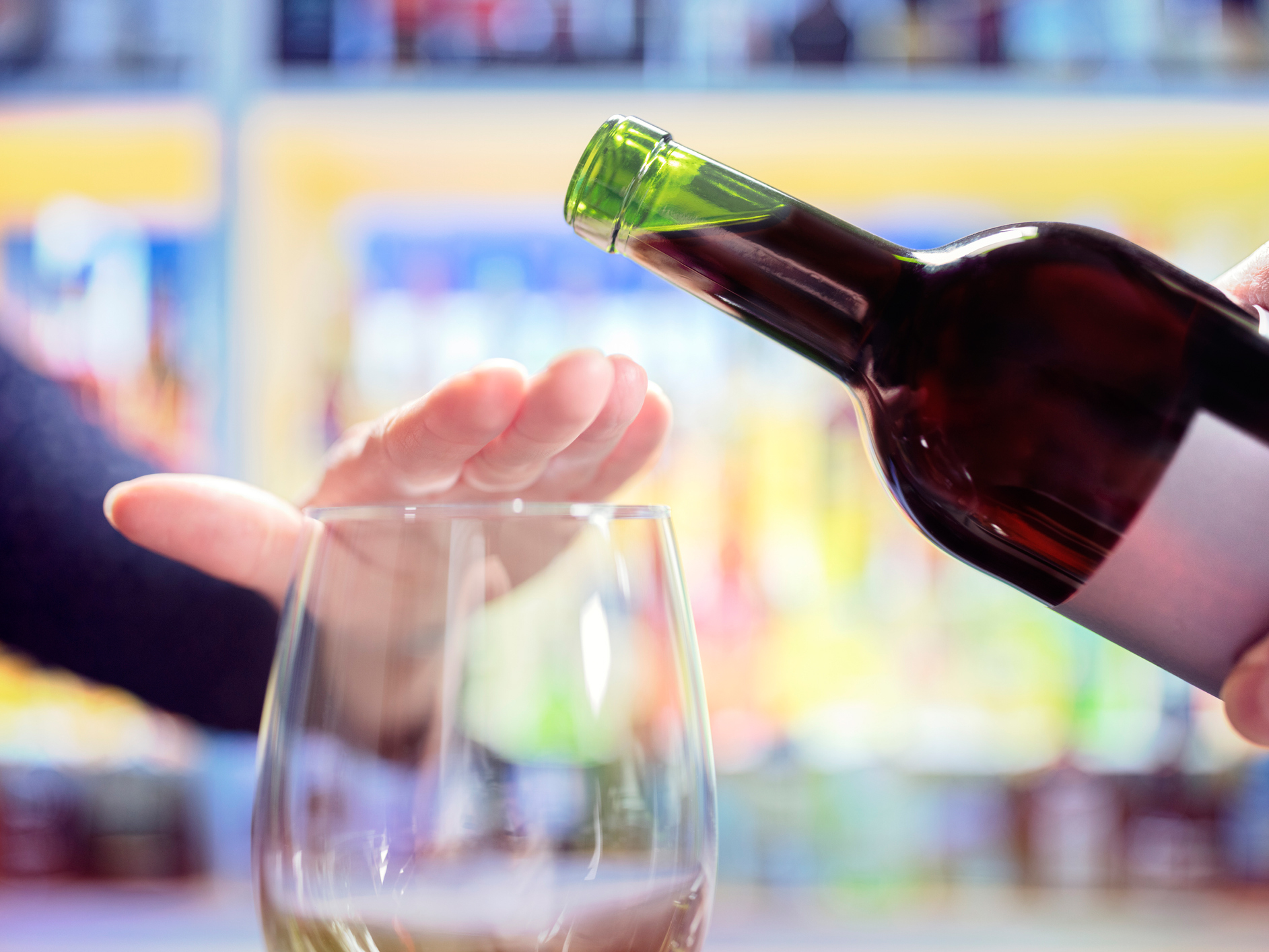Get Easy Health Digest™ in your inbox and don’t miss a thing when you subscribe today. Plus, get the free bonus report, Mother Nature’s Tips, Tricks and Remedies for Cholesterol, Blood Pressure & Blood Sugar as my way of saying welcome to the community!
3 times when you should avoid alcohol at all costs

You’ve probably read about the benefits of drinking wine, particularly red wine.
Red wine and the grapes it’s made from have loads of the phytonutrient resveratrol, known to fight heart disease, help brain function, and improve the way insulin works in our bodies. It is even thought to protect us from certain cancers.
As long as you stick to a glass or two a day, you can get these protective benefits, and enjoy the relaxing effects of a drink before dinner, or a nightcap.
However, there are certain times when drinking wine, or any other alcoholic beverage, will do more harm than good.
Here are three circumstances where drinking is a bad idea, and could even have dangerous health consequences.
Don’t drink alcohol when…
1. You’re taking antibiotics
As a rule, heavy drinking will slow your immune response, and make it harder for your body to repair itself. So, your antibiotics will have a harder time getting the job done.
But there are certain antibiotics with which you absolutely don’t want to drink. It will cause a reaction that will make you feel worse, and that will even add to your health problems.
Of course, your doctor and the drug packaging should advise you of this, but here is some information that will arm you ahead-of-time.
Cefotetan (Cefotan), Metronizadole (Flagyl) and Tinizadole (Tindamax) are antibiotics commonly used to treat urinary tract infections and sexually transmitted diseases.
Drinking alcohol while taking these drugs will result in severe stomach upset and cramps, nausea, vomiting, headache and flushing of the skin.
2. You’re on an antidepressant
Depending upon which class of antidepressant you’re taking, the interaction with alcohol can range from inconvenient to deadly.
If you are taking any antidepressants, it’s a really good idea to check with your doctor about the possible effects of alcohol.
That said, here’s what you need to know before you take that drink:
There are several common classes of antidepressants that should have you avoiding alcohol, but for very different reasons
Selective serotonin reuptake inhibitors (SSRIs) and tricyclic antidepressants: Common examples of SSRIs are Prozac and Zoloft. Examples of tricyclics are amitriptyline and doxepin.
While interactions with alcohol aren’t dangerous in and of themselves, the combination does make you drowsy, which could put you at risk if you are driving or cooking. It can also make tripping and falling more likely.
Monoamine oxidase inhibitors (MAOIs): Some common examples are Azilect and Eldepryl. MAOIs are usually prescribed when someone has not responded to other antidepressants.
During and within two weeks after treatment with MAOIs, you MUST NOT drink any alcoholic beverages that are high in the amino acid tyramine. These include sherry, red wine, beer, and liqueurs.
When MAOIs are combined with alcoholic beverages high in tyramine content, serious heart-related effects, such as dangerously high blood pressure (hypertensive crisis), may occur.
3. You’re recovering from a stroke
Alcohol could interfere with medications meant to prevent a second stroke. These include blood pressure medications, anticoagulant drugs and blood thinners, such as warfarin.
Also, having suffered a stroke, you are likely to be more sensitive to the effects of alcohol, like sleep problems, poor balance, and slurred speech.
After a hemorrhagic stroke, in particular (where blood from an artery has bled into the brain), you should avoid alcohol for several weeks. When in doubt, consult your doctor.
Sources:
- Is It OK to Drink When … — WebMD
- Can I drink alcohol if I’m taking antidepressants? — nhs.uk
- Antidepressants and Alcohol Interactions — Drugs.com













